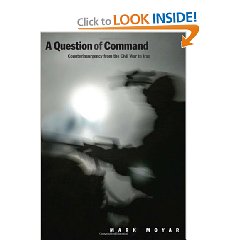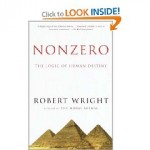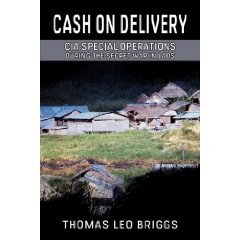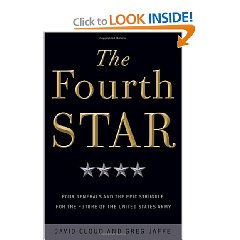
![]() True Story, Part of the “Made in USA” Atrocities r' US
True Story, Part of the “Made in USA” Atrocities r' US
December 26, 2009
Sterling and Peggy Seagrave
I first met the authors after reviewing Gold Warriors: America's Secret Recovery of Yamashita's Gold and then traveling to Europe to interview them–they are in self-imposed exile–for a DVD that was shown at one of my earlier international conferences. [My rendition of this review at Phi Beta Iota, the Public Intelligence Blog, has live links Amazon does not allow here.]
They are among the most serious and talented investigative journalists I know, easily ranking with John Pilger Freedom Next Time: Resisting the Empire, Robert KaplanThe Coming Anarchy: Shattering the Dreams of the Post Cold War; and my special favorite, Robert Young Pelton Robert Young Pelton's The World's Most Dangerous Places: 5th Edition (Robert Young Pelton the World's Most Dangerous Places).
This is a great read. I attended boarding school and later served as a Marine Corps infantry officer passing in and out of the Philippines; I have been inside Japanese tunnels and have a great regard for the Filipino people. Because the US has been so asidious in writing (and fabricating) the history of the Cold War, few know that the Huks were originally a loyal resistance to the Japanese occupiers–the US, despite its tolerance for out of control atrocity mongers like Landsdale, has managed to “occupy” with a softer touch, but one no less detrimental.
As a former spy–a recovering spy–for the Central Intelligence Agency I would certify that 90% of the CIA is good people trapped in a bad system with no blood on their hands. Our problem is the 10% that does renditions, tortures, helps train and arm those who would do genocide and atrocities (including the Israelis, who now teach us rather than learn from us).
RED SKY has no endnotes, but is based on solid evidence. [I provide others supporting references at Phi Beta Iota the Public Intelligence Blog, as live links within this review there.] I consider Gold Warriors (with its CD containing 60,000 pages of maps and supporting documentation) to be the better book, but for some readers, this book will be much more fun and memorable. Here are the highlights from this most truthful account
+ Landsdale was never in combat–he spent WWII in San Francisco writing propaganda for the OSS.
+ When Truman closed down the OSS (he later regretted every starting the CIA) OSS people were scattered around to hide them, Lansdale was sent to Manile to work a desk for Army G-2.
+ Landsdale's bright shining moment came when he recognized the value of a captured driver (Major Kojima Kashi) to General Yamashita, and bribed him to reveal treasure locations. That treasure became the basis for the USA's covert post-war Black Eagle and Golden Lily slush funds used to restore Nazis in Germany and fascists in Italy and Japan, and to do those things Congress would never agree to pay for.
+ Santa Romana, a Vatican agent and member of Opus Dei, was Landsdale's co-conspirator (fast forward to the Opus Dei penetration of the US Government today, every bit as good as the Mossad's sayonim and the Mormon network).
+ Landsdale–the model for the book The Ugly American and also featured in Edward Lansdale's Cold War (Culture, Politics, and the Cold War)–became a “big shot” in OSS-CIA circles because of this success at finding and secretly harvesting the Japanese thefts from China and all across Asia that were hidden in the Philippines when US dominance of the seas prevented onward passage to Japan.
+ Landsale–whom all the books I've seen describe as an opportunist and con artist at heart–saw that anti-communism was the wave of the future in Washington circles (even then CIA was busy importing 100 Nazis a year), and he came up with the idea of demonizing the Huk's, who were freedom fighters, as part of the “Communist Menace.”
+ The book also covers the Chinese diaspora that the US Government has never understood and never taken seriously. The Chinese “High Cabal” is easily as powerful as the European “High Cabal,” they just work more discreetly and make better use of local fronts.
+ Landsdale needed to invent evidence of Russian support for the Huks, so he focused on Russian exiles living in Manila or enroute through the Philippines to other locations including the US.
+ The heart of the story is how Landsale personally destroyed one innocent person and their family, ultimately making the person disappear after five years of surveillance, prison, and torture were brought to an end by a crusading attorney. Some sources have suggested that Landsdale ordered the murder of his trumped up Russian spy, who is believed to have been thrown from a helicopter into the South China Sea.
+ The book ends with Landsdale being rewarded by being sent to Viet-Nam to support Diem (a Catholic mandarin hated by the Buddhists, with a sister that makes Idi Amin look like a wimp) and I have seen other reports that suggest that Landsdale led an effort to plant bombs in the 1950's and early 1960's to achieve the US end of creating a local civil war that would demand US intervention.
There is also a happy ending, despite all the ills that befall the patsy, the source of much of the information in this book escapes and lived happily every after.
I still believe in America the Beautiful and the righteousness of The Average American: The Extraordinary Search for the Nation's Most Ordinary Citizen but I am disgusted and alienated by all that has been done “in our name” over the years, ultimately impoverishing the many to benefit the few. I earnestly believe that the public is a populist power that cannot be suppressed, and that information and communications technologies have changed the balance of power to favor the possibility of creating a prosperous world at peace.
This book is one of the many nails in the coffin of Cold War “irrational exhuberance” that has clearly been repeated in the failure to keep capitalism moral and the failure to keep government honest at home and abroad. We can do better.
Rather than provide links here, see the 98 categories of Reviews at Phi Beta Iota the Public Intelligence Blog.

The authors provided us with the following additional supporting reference:
Reference: James Gibney Review of Landsdale Book
Review: Edward Lansdale’s Cold War (Culture, Politics, and the Cold War) (Paperback)







